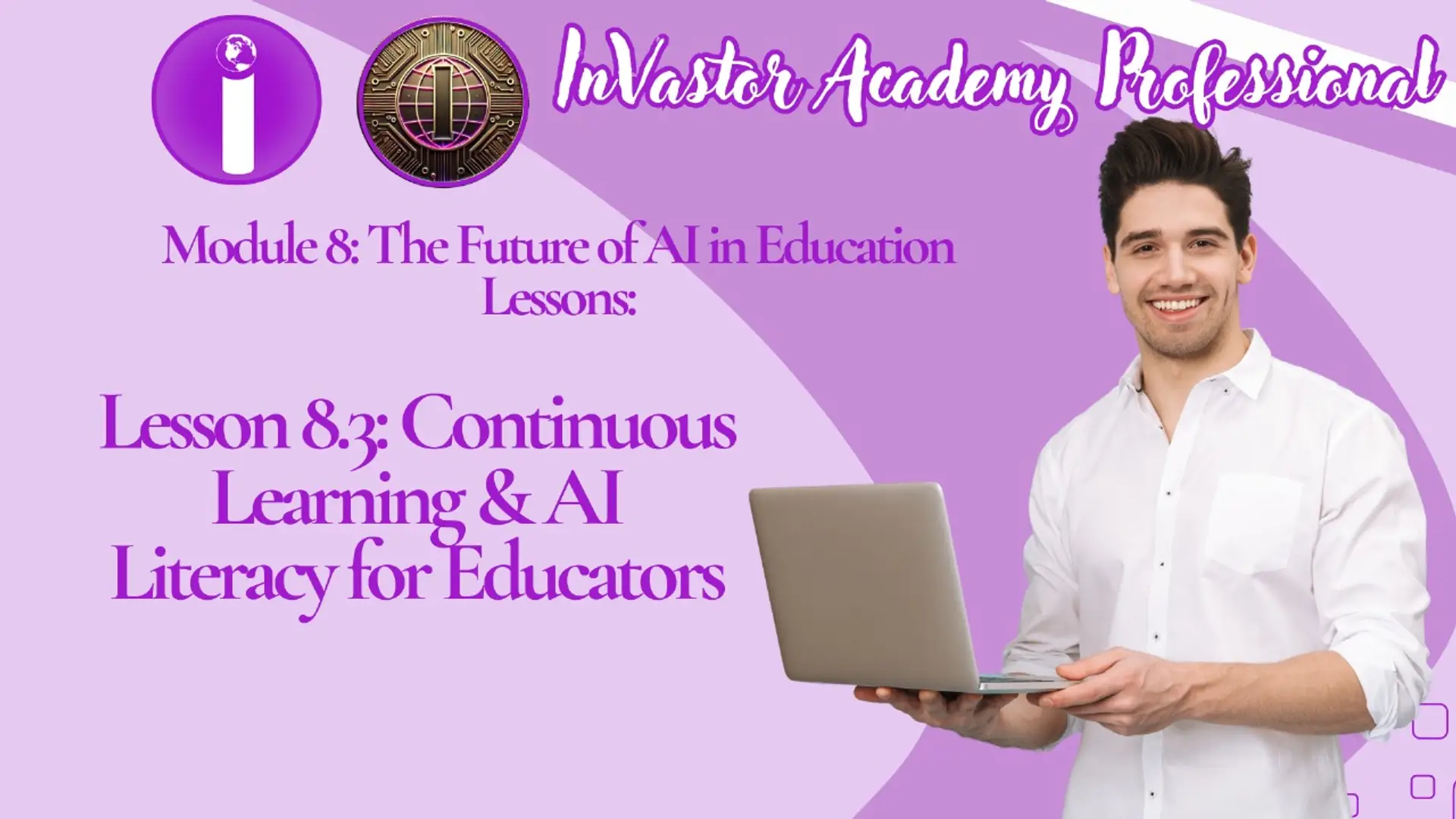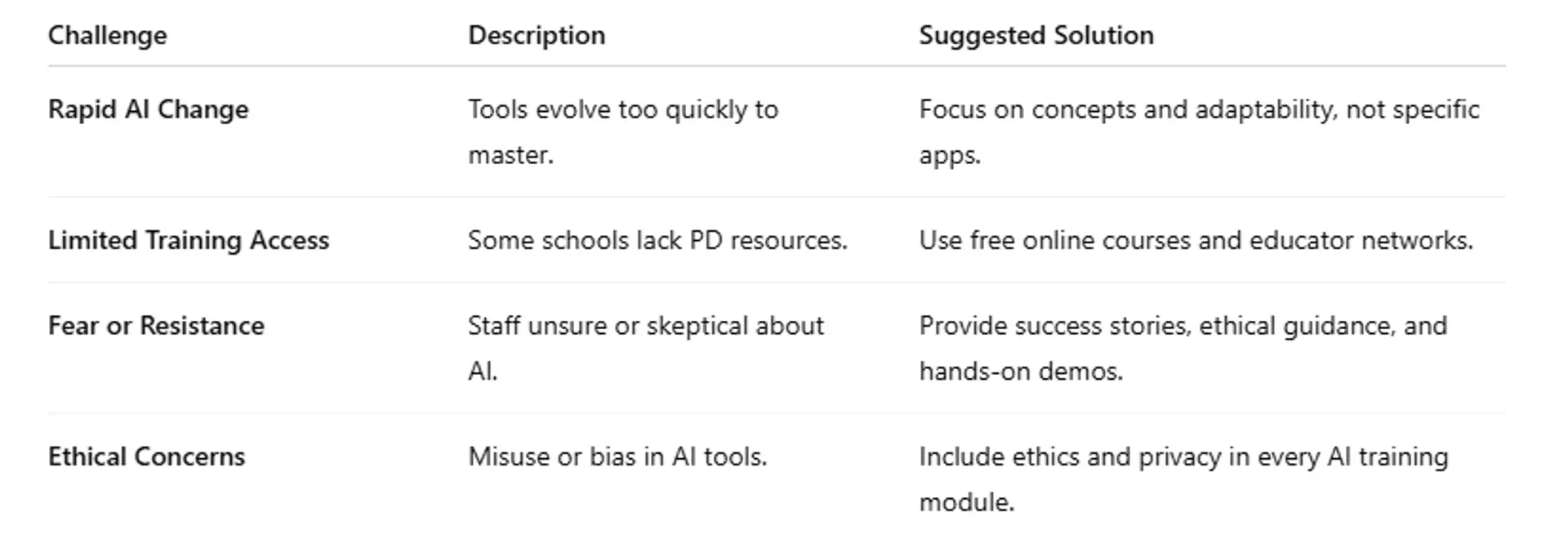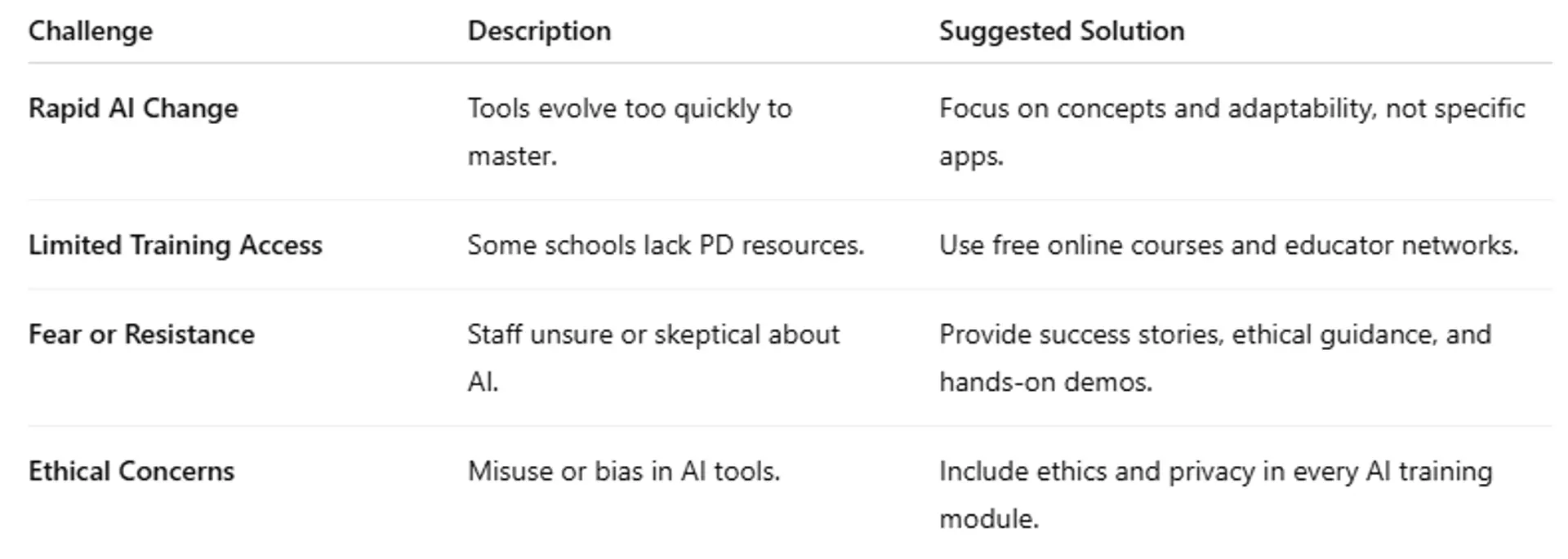

Module 8: The Future of AI in Education Lesson 8.3 — Continuous Learning & AI Literacy for
Module 8: The Future of AI in Education
Lesson 8.3 — Continuous Learning & AI Literacy for Educators
Learning Objectives
By the end of this lesson, educators will be able to:
- Define AI literacy in the context of lifelong professional growth.
- Recognize why continuous learning is essential for educators in an AI-driven world.
- Identify reliable sources of AI education, training, and professional development.
- Integrate AI tools ethically and effectively into instructional practice.
- Model responsible AI literacy for students, colleagues, and school communities.
1. The Importance of Continuous Learning in the AI Era
Education is changing faster than ever before. AI is reshaping not only how students learn but also how teachers teach, assess, and collaborate.
To remain effective, educators must commit to continuous learning — adapting their instructional methods, understanding new technologies, and modeling curiosity and growth for their students.
Key Idea:
Just as students need AI skills to thrive in the workforce, teachers need AI literacy to lead in the classroom of the future.
2. What Is AI Literacy for Educators?
AI literacy means understanding what AI is, how it works, and how to use it ethically and effectively in educational contexts.
It includes three dimensions:

AI-literate educators are not programmers — they are critical, informed, and reflective users of intelligent technologies.
3. Why Continuous Learning Matters for Teachers
AI evolves daily. What is new today may be outdated next year. Continuous professional development helps teachers:
- Stay current with emerging tools and best practices.
- Understand ethical and legal responsibilities related to data and technology.
- Integrate AI in ways that support — not replace — meaningful teaching.
- Develop confidence and adaptability in digital environments.
- Inspire students to become lifelong learners themselves.
Remember:
Professional growth in AI is not about mastering every tool — it’s about building the mindset to learn, question, and adapt continuously.
4. Strategies for Building AI Literacy
Educators can grow their AI expertise through the following strategies:
1.Participate in Professional Learning Communities (PLCs):
- Join school, district, or online educator groups focused on AI integration.
- Share best practices and resources collaboratively.
2.Explore Trusted Training Platforms:
- Participate in ISTE, Google for Education, Microsoft Learn, or UNESCO AI literacy courses.
3.Stay Informed About AI Trends:
- Follow educational technology journals, podcasts, and webinars.
- Subscribe to reputable AI ethics and policy newsletters.
4.Practice Ethical Experimentation:
- Test new AI tools using non-student data.
- Evaluate their pedagogical value before adoption.
5.Reflect and Revise:
- Keep a personal or departmental journal tracking what worked, what didn’t, and what to explore next.
5. Integrating AI Literacy Into Professional Culture
Creating an AI-literate school community means moving from individual exploration to collective transformation:

6. Challenges and Solutions

7. Supplementary Resources
- AI Literacy: AI and the Future of Work
- Personal Growth and Lifelong Learning in the AI Era
- 11 of the Best AI Tools for Teachers
Lesson 8.3 Quiz — Continuous Learning & AI Literacy for Educators
Complete the quiz to check your understanding of policy development and ethical frameworks.
You must score at least 70% to pass.
Conclusion
AI literacy and continuous learning are the foundation of future-ready teaching.
An AI-literate educator:
- Understands the capabilities and limitations of AI.
- Applies AI thoughtfully to enhance learning outcomes.
- Models ethical, curious, and adaptive behavior for students.
AI won’t replace teachers — but teachers who understand AI will lead the next generation of education.
Next and Previous Lesson
Next Lesson: 8.4 — Integrating AI Seamlessly into Your Teaching Workflow
Previous Lesson: 8.2 — Preparing Students for an AI-Empowered Workforce
AI for Educators: Personalized Learning & Content Creation
Related Posts
© 2025 Invastor. All Rights Reserved

User Comments